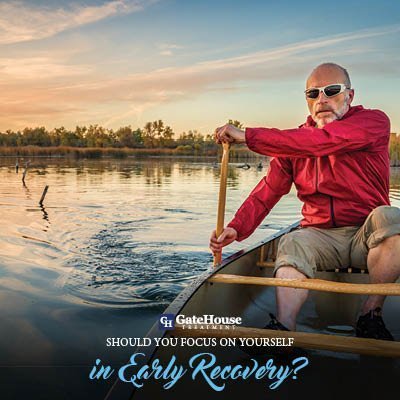
I had a conversation with a non-alcoholic friend not that long ago that was asking me about my alcoholism and alcohol treatment near me. He said something to me along the lines of focusing on myself to get better (you know, the whole selfish program kind of thing). And I told them that this whole thing was about helping other people—that it was a SELFLESS program. They were of course, surprised. You would think you needed to focus solely on yourself to get better right? What we learn when we enter recovery though, is that isn’t exactly the case. Which has brought up this topic for a blog.
We know what the 12-steps program tell us. That selfishness and self-centeredness are the root of our troubles and we must be rid of them. The steps help us to do that as they take us on a journey towards a spiritual experience or awakening–so we can help others. But, it being a selfless program, does that mean I don’t care myself? Not exactly. Being selfish and practicing self-care are two very different things. The program, in its perfect design allows us to practice selflessness in fact, it demands it. Why? Because selflessness allows us to find our ability to care for ourselves in a non-selfish way (self-care). This selflessness is at the heart of our recovery. It is at the heart of our spiritual experience.
So should you be focusing on yourself in early recovery?
The truth is, by practicing the steps and selflessness you are focusing on yourself. You are helping yourself get well.
In some crazy, spiritual, paradoxical twist of events, by thinking less of yourself and more of others, “yourself” will get better. It’s pretty simple. The more you give, the more you will get. The more you seek to help, the more you will be helped. It is the golden rule and a spiritual law to rule them all. It is the secret behind happiness. The authors write about it, the religions preach it, the poets describe it, the saints prayed for it—and it is a potent part of a healthy 12-step program. It’s what works when nothing else does.
What does this look like?
Well, first it looks like realizing how selfish and self-centered you are to begin with. Secondly, it looks like the realization that this time is not yours to do with what you want. And third, it looks simply like leaving any person or place better than when you found them. Living a life that leaves positivity in your wake.
We are taught this at an early age; if you were ever in scouts like I was, and went camping, one of the first things they taught you was that no one should know you were there when you left the campsite. Meaning, cleaning up after yourself, caring for the space, and being grateful for it by making sure you don’t leave a mess behind you.
This is the same way, as a recovered alcoholic or addict, we treat people, places and things. In doing so, we practice a kind of selflessness that cares not only for the world around us, but for ourselves as well. When we are selfless, when we care for others, we inherently begin caring for ourselves. We start to build confidence in who we are, what our purpose is, and why we are here. This is the kind of confidence you don’t have to fake, because you know who you are, and who you are is amazing.
So is this a selfish program? Absolutely not. Does it give you the ability to care for yourself by caring for others? 100% yes. In every act of selflessness, your self gets better. Should you be focusing on yourself in early recovery? Yes, by helping others.
If you have any other questions about recovery please contact GateHouse Treatment today. If your still thinking: “How can I find alcohol treatment near me?” You can heal, We can help. (855) 448-3588
- Cymbalta Withdrawal: Causes, Symptoms, And Management - October 12, 2023
- Boredom in Recovery: 5 Tips to Avoid Relapse - October 6, 2023
- Overconfidence and Rehab: Avoiding Relapse - October 4, 2023




